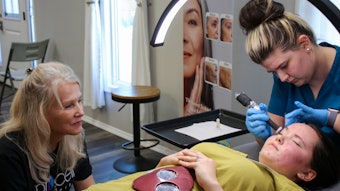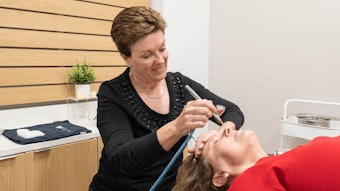
One of the top fears of most hard-driving career professionals is failure. For those who have experienced it, failure can be extremely traumatic. High goal-seekers grapple with thoughts about the prospect of failure on a routine basis because achieving their objectives becomes such a large part of their lives. Professionals who have been wildly successful know that it is nearly impossible to really get ahead without taking enormous risks. And it only makes sense that the farther a person reaches, the greater the chance that something will go wrong.
Very few who have set out to accomplish extraordinary things in this field—or in any other—have set out on a well-paved path knowing what to expect around every turn. There are no roads with signs pointing upward nor any written rules to ensure success. In fact, those who have had the courage to climb the ladder have quickly found that it is missing a couple of rungs near the top. Professional actions of any real consequence take courage to execute, which means that if you want to achieve your greatest aspirations, you have to teach yourself how to face your fears and prepare for the possibility of loss.
Rebuilding and reconnecting
As career survivors who have fought their way back will attest, you emerge feeling both a sense of honor and responsibility to make it again. Wanting to share your knowledge with other fast-trackers is what motivates you and makes you want to work harder, claims Dianne Brier, a spa consultant who found her groove again after being let go with no notice and no financial safety net.
“I had just returned home from a budget meeting. I turned on my answering machine, and the message that I was terminated was the last one I listened to on that long and exhausting day,” says Brier, a single mother of 5-year-old twin boys. “When it finally sunk in, I felt betrayed and at my wits end, with my panic rising and my confidence at an all-time low. It took me months to regain my self-assurance.”
Brier just kept going. “I reconnected with old clients and asked for their help with referrals. It was a humbling experience at first, but the reception I got from people in the industry made me feel as if I was a part of something bigger than myself.”
Different focus
Several years ago, when Janet, an attractive, blemish-free facial therapist in her late 30s from Burlingame, California, hit her 40s, she began to experience massive facial breakouts. “Nothing I tried seemed to work. Everyone told me that my adult acne would kill my career. By the time I got my skin problem under control, I was badly scarred,” explains Janet. She knew she would need skin resurfacing procedures, but she just couldn’t afford all the treatments required to remedy the situation. Janet took a class on camouflage makeup and restored her career by becoming a cosmetic rehabilitation therapist.
“Not only was changing direction a wise career decision, but it also allowed me to explore an entirely different aspect of esthetic work the I never would have considered,” she says. “The key for me was that I found a way to turn my career adversity into a professional advantage. Now I am able to get all the treatments I need for free at work, and I can show others how they can benefit from the same medical therapies.”
Coming back
“I just thought of what I was doing as a job,” admits John, a product supplier who, one day, en route to a salon he worked with, was involved in a brutal car collision that almost took his life. John spent months in physical rehabilitation therapy, which played havoc with his career.
“Being incapacitated gave me time to step back and think,” recalls John. “I started to take myself and my work more seriously, and was committed to increasing the revenues of the salons in my region. I started to read up on marketing and retail management. I enjoyed studying it so much that I even took an evening course at a local college and some classes I found online.” He began to offer tips and advice, which gave him an entirely new perspective of himself professionally. Before he knew it, John was given a promotion and an increase in his salary. “One thing led to another and I ended up an operations manager,” he says. Today, John owns a portion of the company after having negotiated a sweat equity arrangement—something he says would never have occurred if not for his career setback.
Go above and beyond
There are literally hundreds of stories of people right now in the spa industry who are currently in the process of making career turnarounds after enduring professional setbacks. One of the most important details for success is a person’s capacity to believe in themselves and to hold onto their sense of self-respect. Think of career failures as nothing more than interruptions, and acknowledge that they have no power to make you an unfortunate victim. Every setback is an invitation to go above and beyond where you had previously been in life.










